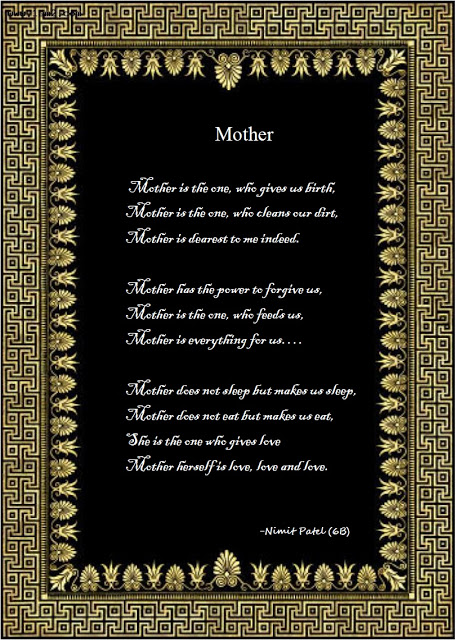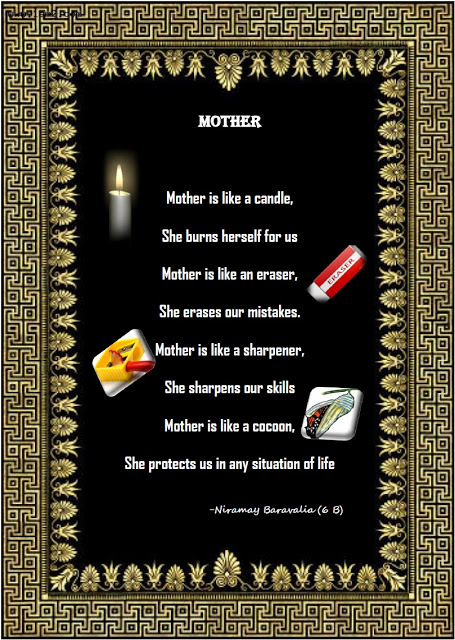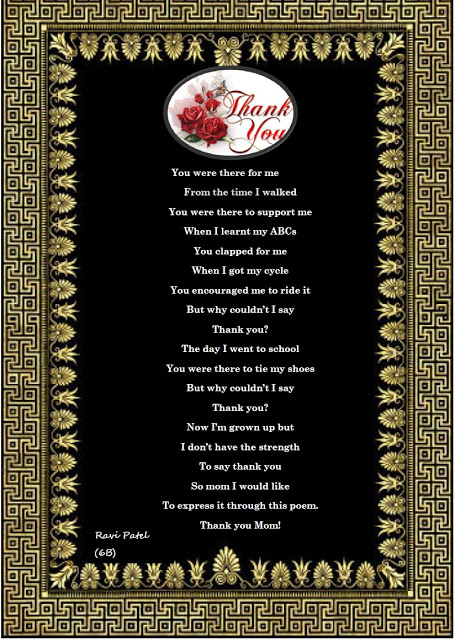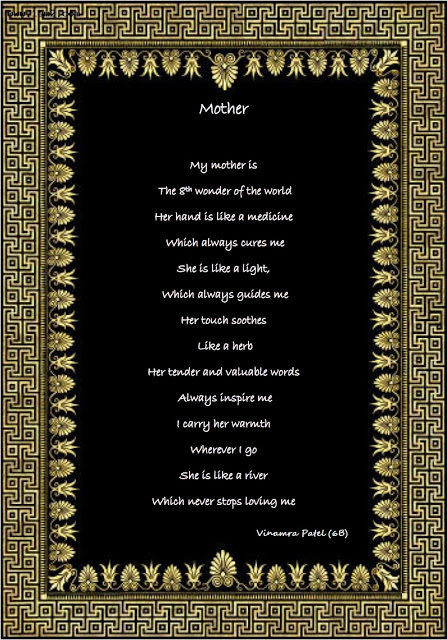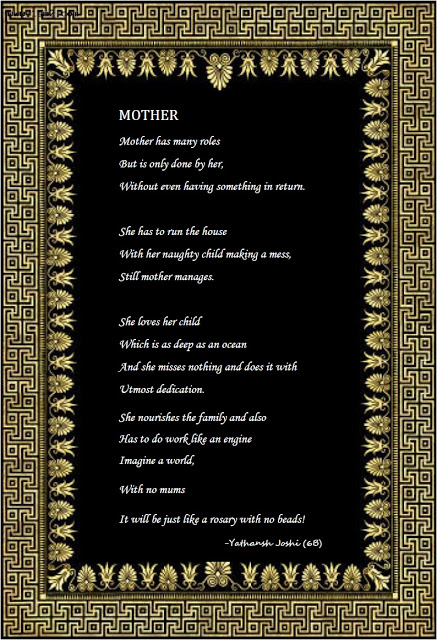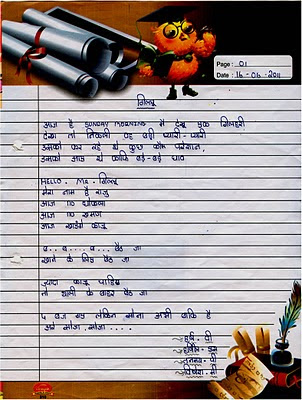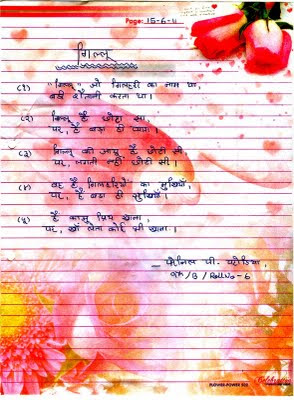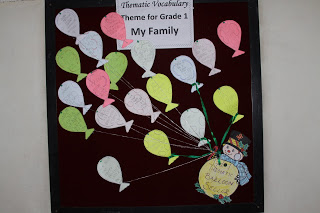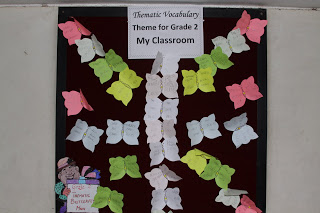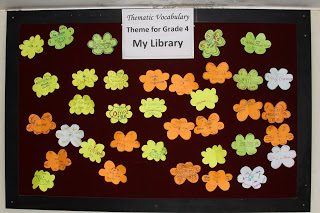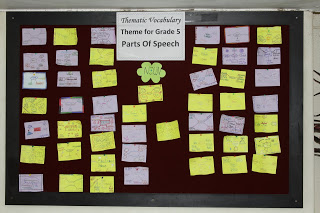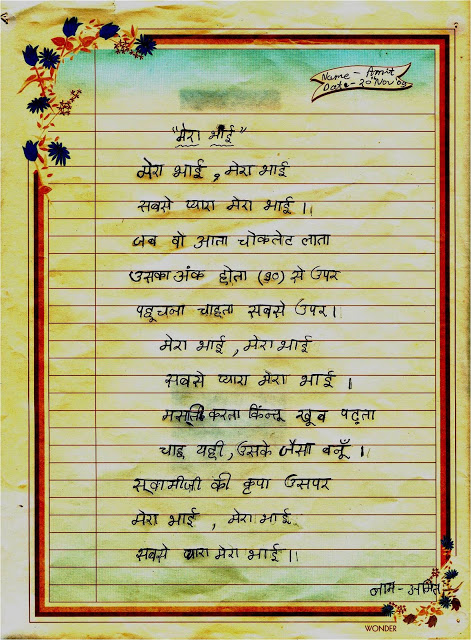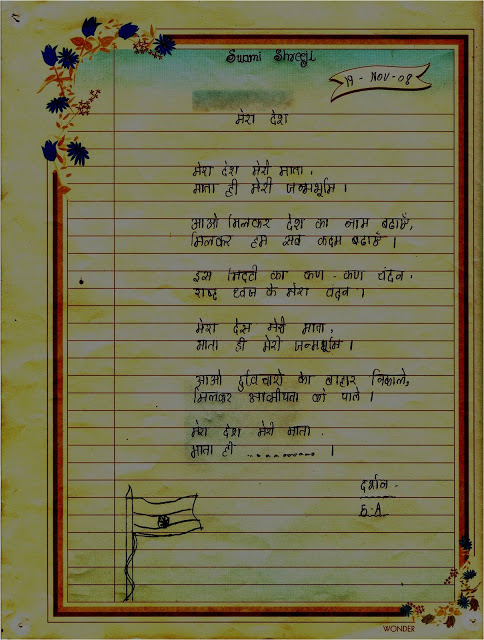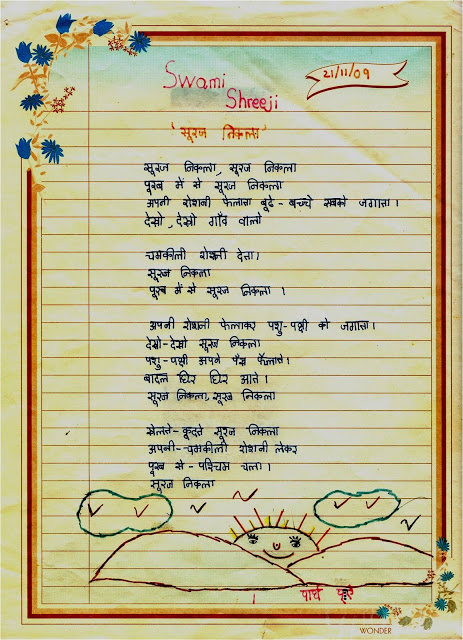Recently students of Std IX A were taught a nature poem written by Alfred Tennyson where he personified a river named Brook. Our students used personification in their poems trying to go parallel with Tennyson.
I play with pages and papers,
With sharpeners and erasers.
With funny face that they made,
More they write, more I fade.
Now small and short is my look,
With that black colour I took.
I think my owner is cool,
As he tossed me as a fool.
I shed my skin everyday,
To give my best day by day.
Bob’s pen-stand is my beautiful home,
Living here take a still-form.
I am shorty smart I say,
And slim and fit in every way.
Bob keeps me in his hand,
Because I am a big magic wand.
-Parikshit.J.Patel {9 A}
Paper
I take birth from a tree,
And all that they get me for free.
People took me for granted ,
And threw me wherever they wanted.
People used me to fulfill their will,
And took me to that paper mill.
Man uses me in any way,
I am better than a plastic they say.
– Siddharth.R.Jain {9 A}
A Fan
I spin, I spin, I spin, I spin
With none of my kit and kin.
Strong are my hands ,
Which sometimes are mend.
I swirl, I twirl, I twist, I turn
As fast as a rocket when I run.
Hurting air is my hobby,
But I am never in the lobby.
I nick, I gash, I snip, I tear,
The cool air whose cry I hear.
My favorite dish is electricity,
Which is only found in the city.
I spin, I spin, I spin, I spin
With none of my kit and kin.
I swirl, I twirl, I twist, I turn
As fast as a rocket when I run.
– Harshit.Y.Aggarwal {9 A}
